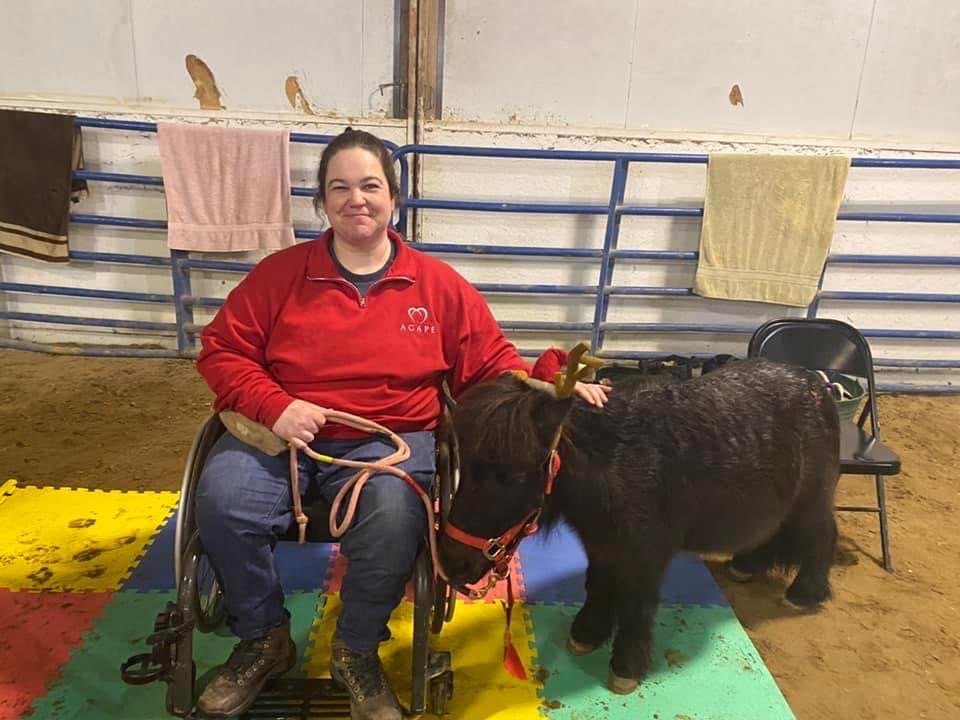As an Agape volunteer who is disabled, I was given this opportunity to write about disability related topics each week of March for Disability Awareness Month. This week I am focusing on what disability awareness means to me, living with my own unique combination of disabilities. There are many different types of disabilities, and every disabled person’s experience is different.
When I am out in the world as a wheelchair user, the thing that inhibits me the most is a general lack of awareness in society. The Americans with Disabilities Act (ADA) is helpful, but it is not enough. For example, the ADA law may require a ramp to enter a public building, but that ramp may be located at the back of the building, at the end of a long path leading to a dirty door next to a dumpster. And that doesn’t guarantee that the inside of the building will be clear of obstructions. This is exhausting for a disabled person, and can feel disrespectful.
Accessibility isn’t just about having designated parking or ramps or grab bars in the bathroom. If these areas are blocked or not positioned correctly or used inappropriately, a disabled person can’t access them when needed. Many people don’t realize that outdoor terrain like grass and gravel are not wheelchair-friendly surfaces, often meaning disabled people can’t fully participate in outdoor events alongside their non-disabled peers. If more people understood this, disabled people could be out in the community more, which would lead to more visibility, resulting in increased awareness and better accessibility.
Even though I am disabled myself, I am still learning to be aware of others’ disabilities. Not all disabilities are mobility related, or even visible to others. But they are all equally valid and have their own unique accessibility needs.
Volunteering at Agape has helped me increase my awareness of disabilities other than my own. Thanks to equine assisted lessons with blind and visually impaired children, I am learning to gesture less and use my voice more when interacting with them. My (invisible) cognitive disabilities sometimes make that hard for me, but it’s still important to try so everyone can fully participate in activities.
Written by Maria Seno, Agape Volunteer

